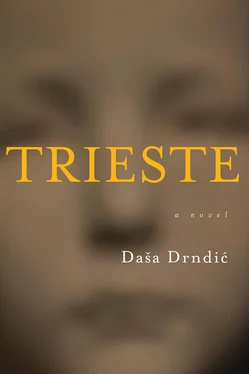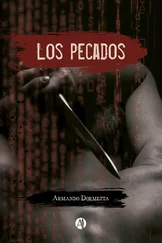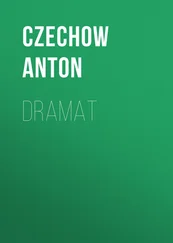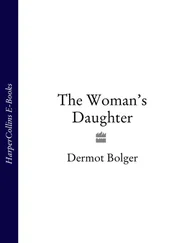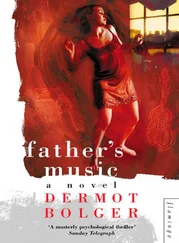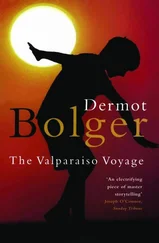Schloss Oberweis was called Alpenland between 1943 and 1945, and children lived there, mostly small children, mostly children who had been stolen, mostly, I later learned, children stolen from Yugoslavia and the Adriatisches Küstenland. At Alpenland, at Schloss Oberweis, that is, there were also children from Poland, but these were merely a vestige of stolen Polish children, because about 250,000 stolen children had already been placed in some twenty Lebensborn homes throughout the Reich, and in the General Government, of course, in Cracow, in Otwock and in Warsaw, from where the little blonde, blue-eyed Poles were sent for brainwashing to the hell of total Germanization, for adoption with trusted Aryan families or — if these stolen children did not meet the strict selection criteria — they were shipped off to concentration camps for lethal injections by Himmler’s tried and true physicians.
I grew up the way most children do, in an ordinary, routine and relatively boring way. Of course, the details of the big Third Reich secret , of the population project designed to boost and spread the Übermensch species, of that Lebensborn plan, I learned only once I’d begun researching, and I started my research after that (then) devastating sentence from my mother, Martha Traube, I did not give birth to you. My father Jürgen Traube was already dead when Martha Traube said, Now I’ll tell you everything I know, but it turned out that she knew very little, that she actually knew nothing, or pretended to know so little about me, about Austria, about the war, about the Nazis, because the war and post-war doubts of my parents Martha and Jürgen Traube (if they entertained any) ended in 1946. I knew I had a brother named Gottfried, Jürgen and Martha Traube’s son, because there was always talk of Gottfried in the house, while almost nothing was said of the war and National Socialism, at least not by the time I was old enough to remember such conversations. Gottfried had been killed as a soldier of the Wehrmacht on 24 November, 1942, at Stalingrad, when he was not yet twenty. The album with Gottfried’s photographs, a reliquary, lay in a small niche by the living-room window and I leafed through it, especially during my childhood, and whenever I leafed through it I’d ask my mother Martha, Where am I when I was little? Mama Martha would say, We lost one of the albums when we moved here, the album with your baby pictures taken before the pictures in this album which, as you see, wasn’t misplaced, and then I looked at myself in the second album in which I was already eight months old on the first page and sitting up. The war was nearly over, Martha said on her deathbed, and the Oberweis home was about to close. At Alpenland they told us that your father had been killed somewhere in the Adriatisches Küstenland, Martha said, that your birth mother died when partisan bands bombed Casa Germanica in Trieste, she said, and that German troops found you at a nursery for German children which was reduced to rubble. You can be sure, they told us at the Salzburg Lebensborn, this is a child of German blood, they said, although we hadn’t asked. You see, they told us at Schloss Oberweis, see how blonde and blue-eyed the child is and how tall for his age, they told us, Martha said, and besides, the child was examined thoroughly at the Race and Settlement Office, R.u.S.H.A., so there could be no doubt, they said. Everything happened at lightning speed. Our petition for adoption had been waiting for six months at the Salzburg Lebensborn, but then they called from Oberweis on 21 April, 1945. Come right over, they said, we have a child. The next day we wrote to R.u.S.H.A. in Salzburg. We asked them whether they had any new information regarding your background. Herr Obersteiner answered us personally. Herr Obersteiner was the chief of police and a high-ranking S.S. official of the Salzburg R.u.S.H.A. office, Martha said. Here is the document. Look, on 27 April Herr Obersteiner writes, We still have no reliable information on the background of your child, so we ask for your patience. We are hard at work on this case, writes Herr Obersteiner. We will contact you as soon as we have relevant information regarding the child. I hope your little Hans will bring much joy to your lives. See here? Herr Obersteiner writes, Martha said. We had no word from them after that. On 4 May the Americans enter Salzburg and immediately bomb Hitler’s “nest”, Berchtesgaden, chaos erupts. Thousands and thousands of Nazis from Germany pour into town and shout, Don’t you worry, in two weeks’ time victory will be ours! Still, they strip off their uniforms and in worn Lederhosen, carrying rucksacks, they leave to yodel in the fresh mountain air. Pitiful phantoms wander the streets, Germans and Austrians dressed in weird combinations of grimy, tattered uniforms of the Hungarian, Czech, Yugoslav and Italian armies, in the hope of saving their skin. The Salzburg Nazi government slinks off into the underground, burns documents, steals supplies of food and weapons, and flees. And we didn’t care , Martha said as she was dying, we only wanted a little Gottfried and that was that, Martha said. They didn’t send us anything, any documents, because the home at Oberweis was closed soon after that and the children vanished. Where they went to I don’t know , Martha said. When they handed you to us on 21 April, 1945, at Schloss Oberweis they said, Here is a new birth certificate, an absolutely valid birth certificate, a government birth certificate, they said, and on it we will write your last name and your child’s name. Hans, you say? they asked. So that’s it, Hans, repeated Martha as she was dying. For many years, Hans, Martha also said, this unspoken truth has been eating me up. From inside, she said.
Just like Ferdl, I said.
There was always chocolate in the house. There were chocolate balls and chocolate bars even when there was no meat, because my father Jürgen Traube worked first at the Café-Konditorei Fürst in Alter Markt, at Brodgrasse 13, where Paul Fürst began making his echte Salzburger Mozartkugeln by hand, where manufacture by hand continues to this day. Later, when Mirabell splits off from Rajsigl, a famous Salzburg chocolate factory, and Fürst builds his own plant in Grödig near Salzburg, Jürgen Traube works in the sales department at Hauptstrasse 14 and still brings home Mozartkugeln, which Mirabell may not have made by hand, but they were still authentic. So, probably for lack of other stories, Mozartkugeln and their authentic production by hand became, aside from Gottfried, the foundation of our family life.
Former chocolate magnate Felix Rosenzweig propels Jürgen into the chocolate industry in the late 1950s. Felix Rosenzweig is one of the pre-war owners of Rajsigl and Hofbauer and he flees Austria in 1939, only to return in 1950 with nothing but the shirt on his back, yet nevertheless alive and with some of his connections and company shares awaiting him, confiscated, in the vaults of Swiss banks. Felix Rosenzweig brings his wife Isabella Fischer with him to Salzburg, and she opens a small photography studio with a darkroom on the ground floor of a building that had originally been owned by the Rosenzweigs, but was confiscated in 1940, and, with the approval of the regime, some suitable people had moved in during the war. These same people generously rent Felix Rosenzweig his own premises in 1950, so that he can set up the photography “salon” for his wife Isabella Fischer, and for the whole time the civil court suits are going on, dealing with the (partial) return of Felix Rosenzweig’s property to Felix Rosenzweig, these people collect rent for Isabella’s photography salon. The reinstatement of the Rosenzweig family property to its members takes an unreasonably long time, partly because the other members of the Rosenzweig family who are holders of this property never show up, because, it seems, they are no longer around, and at that point, in 1950, it is difficult to prove where and how they met their end, because then (and even later, and even, to some degree, today) the Austrians stubbornly insist that they were the first victims of Nazism and that they haven’t a clue about anything, all they know about is their own losses, their own victims, their own vast suffering. My parents Martha and Jürgen Traube offer Felix Rosenzweig and Isabella Fischer (Rosenzweig by marriage) a small flat in the attic of the building where we live, until they find their feet, and are surprised and almost offended that Felix and Isabella bring up their Jewish background. Nonsense , Jürgen Traube says, Jews are people, too.
Читать дальше
